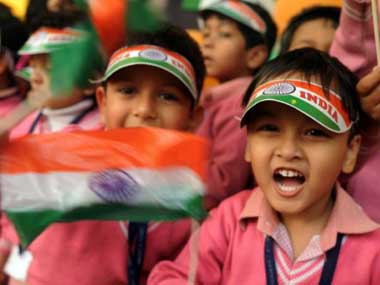New Delhi: The Centre’s decision to qualify its commitment to children in guaranteeing the right to free and compulsory education has taken those within its own ranks by surprise. On Wednesday (13 February) the Centre in a much-delayed clarification to the High Court said that the prohibition on private schools to screen children and collect capitation fee applies only to elementary education (children from 6 to 14 years) and that it was for the state government to regulate nursery (or pre-school) with its own policies. The High Court is hearing a petition by NGO Social Jurist that has challenged notifications issued by the Centre and the Delhi Government in 2010 that gave private unaided schools autonomy to formulate an admission policy based on a category-based system. The petition makes the case that a category-based admission process that gives preference to children whose siblings or parents went to the same school and has led to rampant commercialization of nursery admissions in the name of ‘management quotas’ is a blatant violation of the RTE Act. The Act prohibits discrimination between children on any grounds. [caption id=“attachment_626726” align=“alignleft” width=“380”]  Nothing to cheer about. AFP[/caption] Speaking to Firstpost, Shanta Sinha, Chairperson of the National Commission for Protection of Child Rights (NCPCR), said “It is disappointing that the government took a stand of this nature. It is really disappointing that the government has not talked about pre-school children, especially when it had to do with processes and not investments. So it is very disappointing that the government has not looked at a Rights-based procedure in this regard because it does not require any other kind of commitment from the government in terms of investments.” The NCPCR monitors the implementation of the RTE Act. Emphasizing the need for greater protection for children in pre-school, Sinha said: “Children below six years of age need greater protection when considering the procedures for admission and they cannot be subject to screening." “While it is true that the Right to Education Act does not explicitly cover rights of children in the nursery stage, yet the spirit behind the provision prohibiting screening, which is applicable for children from 6 and above, will have to be considered all the more seriously for younger children. And they cannot be subject any kind of competition or victimization.” Those in the education sector who have studied the implications of the category-based admission process say the Centre’s stand betrays an “open collusion with private school managements” and is a promotion of commercialization that allows schools to charge premium rates for nursery seats in the name of ‘management quotas’. Amit Bhargava, an activist, who in a series of letter to the Delhi Chief Minister has highlighted how the category-based admission process is hugely biased to benefit those who pay heavy premiums to get a management quota seat, says “By intentionally giving huge weightage to sibling and alumni categories, schools have ensured that siblings and children of only those who had been admitted through Management Quota get admission through General Category seats. “Therefore, by buying a single Management Quota seat, generations after generations reap its benefit. And thus the schools allegedly demand a huge premium for such seats.” he said. Commenting on the contradiction in the latest stand taken by the Centre before the High Court, Bhargava said, “After issuing directions under Section 35(1) of the RTE Act in respect to nursery admissions to the Delhi government on 23 November 2010, and on other occasions, it is rather strange that the same Director in the Ministry of Human Resource Development has filed an affidavit which is contrary to his earlier circulars.”
Activists have alleged the government’s stand on RTE and nursery admissions shows that it is acting in collusion with private nursery schools.
Advertisement
End of Article


)
)
)
)
)
)
)
)
)



